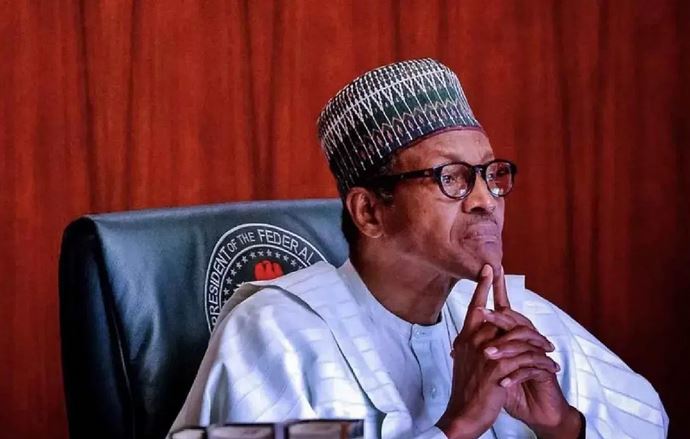Border closure failed to achieve objectives — Prof AsiwajuVanguard News

*It was completely counter-productive
*Created untold sufferings for border communities
Anthony Asiwaju, Professor Emeritus, University of Lagos and a leading authority on borders lives along the Nigerian-Benin Republic border. He spoke to Vanguard on issues around Nigeria’s border management against the backdrop of the closure and recent re-opening of the nation’s land borders. Excerpts
By Yinka Kolawole
How effective is Nigeria’s border policing and management mechanism?
There is, perhaps, no better pointer to the abysmal failure of Nigeria’s border policing and management mechanism than the recent candid confession by President Muhammadu Buhari, as reported in the media on Monday, 22 December, wherein he was correctly described as having given up and ‘handed over Nigeria’s border’s to God’.
The President, Commander-in-Chief of the Armed Forces of the Federal Republic of Nigeria was quoted to have said: “I came from Daura, a few kilometres from the Republic of Niger, so I should know a bit about that country.
The (outgoing) President (Youssoufou) is quite decent, and we were in touch… Also, we share more than 1,400 kilometres of border with that country, which can only be effectively supervised by God.”
READ ALSO: Smuggling: Nigeria’s security officials begin joint border patrol with Benin, Niger
What we must quickly add, though, is that what has so manifestly frustrated Buhari is his own administration’s self-inflicted conservative police-state approach to border management based on obsolete use of state coercion apparatuses that permits police brutality; inspired by a negative ultra-nationalism and indulging in inherently impracticable tradition of unilateral border closure.
That is completely out of tune, not only with commitment to basic democratic values, including respect for human and people’s rights, including those in the myriad border communities who found themselves in the nation’s territorial peripheries for no fault of their own.
But also unacceptably insensitive of Nigeria’s state obligations to neighbouring sovereignties, including two of Africa’s vulnerable landlocked countries, in the interest as much for international relations as common commitment to bilateral cooperation and wider regional integration endeavours.
As one whose life and entire career as a historian and public intellectual have been bound up borderlands in Nigeria, Africa and around the wider world, I have had cause to constructively critique this practice, in Nigeria, of indefinite unilateral border closure and the usual attendant police brutality, common suffering and ineffectiveness.
My inaugural lecture as Professor of History at the University of Lagos on December 12,1984 titled and published as “Artificial Boundaries”, was delivered in the heat of General Buhari’s first coming as a military head of state(December 31,1983 to August 27,1985). Virtually all of that was lived through in the context of Nigeria’s first experience with an indefinite unilateral border closure which the military regime under his watch imposed on April 24,1984.
Paradoxically, it was General Buhari, as the then sitting military head of state, one of the most authoritarian the country had seen, who accorded the lecture formal approval; the only one in my awareness to be ever so officially stamped.
The action opened a new vista on my academic research career that has since injected a widely acknowledged impact on border policy turnaround in Nigeria, ECOWAS and the African Union, till date.
That informed my utter disappointment, if not complete disgust with the obviously ill-advised re-imposition of the unilateral border closure regime on August 20, 2019, which has also been constructively critiqued in the University of Lagos Faculty of Arts Lecture, delivered and published on December 12, 2019 as ‘Unilateral Border Closures’: Thirty-five Years of Retrospection on Nigeria and Africa’s anniversary of the Inaugural Lecture of1984.
The appeal for immediate reopening of the borders, made in 2019 lecture at Unilag, was echoed and re-echoed in the contributions I was privileged to make in two high policy-influential platforms. First, in a formal presentation to the just-ended Executive Security Management Course 13 of the National Institute of Security Studies, NISS, and in the discussion of a brilliant panel on Nigerian experience in multilateralism at this year’s annual meeting of Society for International Relations Awareness, SIRA, chaired by the famous retired Ambassador Sani Saulawa Bala, both in Abuja, August 17 and November 25 respectively.
It took the military palace coup d’etat that ousted General Buhari’ s regime for the succeeding General Babangidas administration to on March 1, 1986 to reopen the borders shut in August 1984.
Thank God for President Buhari who, on his own accord, on December 19 or so, reopened the borders, officially believed to have been put under lock and key since August 2019, and, out of a frustrating realisation of a predictable futility, handed over to God, who alone he now believes can ensure the effective supervision of his country’s boundaries!
What is the estimated value of Nigeria’s cross-border trade?
Estimating the value of cross-border trade in developing economies like ours has been and would remain problematic for the obvious reason that much of it is informal and falls within what is diversely referred to in literature as ‘unrecorded’, ‘parallel’, ‘second economy’, ‘clandestine’, ‘smuggling’, ‘contraband’ or plainly criminal, simpliciter, depending on whose perspective or prism is in use – locality, which embraces the practitioners; scientific research whose operators are in quest of value-neutrality and objectivity.
Or, as often, state and official establishment, that band and bond concerns for law-making and, more especially, law-enforcement that tend to criminalise actors and activities.
Largely because of its predominantly informal nature and character, cross-border trade has been and is likely to remain the epicentre of the culture of fraud that is prevalent in border areas, making it the major contribution to the African and wider ‘Third-World’ phenomenon of ‘second economy’ that breeds relatively few stinkingly wealthy citizens in economically fleeced parallel poor countries, such as has been covered in a fascinating case-history of the DRC and published in Janet MacGaffee and Others(1991), The Real Economy of Zaire: The Contribution of Smuggling and Other Unofficial Activities to National Wealth (Philadelphia: University of Pennsylvania Press).
Notwithstanding the obstacles in the way of reliable measurements, the value of cross-border business transactions have been found to be staggeringly high, based, first of all, on the statistics, especially of re-exportations into Nigeria from neighbouring countries, such as Bénin and Cameroon, and even Niger which also engages in re-exportation into Nigeria through the same autonomous Port of Cotonou.
The point here is about the use of the statistics obtainable on primary importations of identifiable commodities, principally Asian rice and second-hand vehicles, coming into Nigeria, from across the borders of Bénin, Cameroon and Niger.
READ ALSO: Covid-19 and the Professors by Femi Adesina
When you add this to actual field observations of movements, daylight and, especially, night-time, plus property level and other possessions known of the local operators and associates, there is no doubting the enormity of the transactions.
This concrete realisation by experts, including those working for the World Bank, that contrary to the initially held impression about little or no intra-African trade, the scale of a much higher percentage of the totality of Africa’s foreign trade exists.
What was the benefit of the over 15- month land border closure to Nigeria?
The response as to what benefit to Nigeria has been the more than 15 months land border closure must depend on whose ‘Nigeria’, on what unit or level of analysis is in the discussion. I have, for example, been entertained by widely publicised ‘effectiveness’ of the border closure and official reporting on significant increase in Customs receipts, in reference, curiously to the ban on ‘smuggling’ of rice into and of the Nigerian petroleum products out of Nigeria.
Buhari’s aforementioned recent confession to ineffectiveness of the border control during the period of the so-called border closure shows clearly that the contrary has been the case.
Nigerians who, like Buhari and this commentator, have their homes close to any segment of the officially sealed borders know the truth: as we have argued scientifically in respect of the two known experiences with indefinite closures, it is when they are so closed officially that borders are especially open to business and most profitable transactions.
To be continued
Vanguard News Nigeria
Related
Source link





